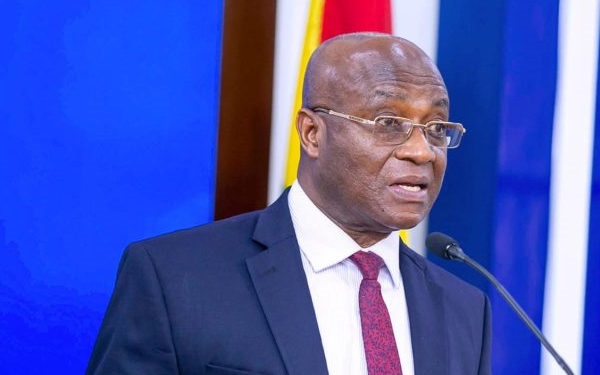The Majority Leader, Osei Kyei-Mensah-Bonsu, has asked the Electoral Commission not to create chaos with its proposal to close polls at 3pm instead of the 5pm in the 2024 general elections.
According to him, if the Commission could ensure polls start early and create more polling centres to ensure many people can go through the exercise early, the proposal would be in good faith.
However, without proper mechanisms, the EC might create chaos with the new policy by disenfranchising people according to the Suame lawmaker.
“If we are sure, that we start early and then create many more polling stations such that by 2pm 90 per cent or 95 per cent have voted, why not? But we should not create a situation where instead of cleaning up the system, we end up creating chaos,” he told TV3’s Beatrice Adu in an exclusive interview Wednesday, December 20, 2021.
For instance, the Electoral Commission had to postpone voting in some electoral areas Tuesday, December 19, 2023 during the district level elections due challenges the Commission encountered.
The polls were rescheduled to today, Thursday, December 21, a statement signed by its Acting Head of Public Relations, Michael Boadu, indicated.
Meanwhile, the exercise was expected to cover 6,215 electoral areas across 216 metropolitan, municipal, and district assemblies except the Nkoranza North and South in the Bono East Region.
Over 66,000 people were competing for the District Assembly and Unit Committee positions in the exercise.
The EC’s data indicates that there were 18,755 assembly member candidates and 47,502-unit committee member candidates, totaling 66,257 candidates.
Out of the 18,755 assembly candidates, 17, 474 are males representing 94 per cent, whilst the females are 1,106 representing six per cent.
Also, out of the 47,502 unit committee candidates, 40,923 are males representing 88 per cent and the females are 5,413 representing 11.6 per cent. This was an appreciable increase in the number of candidates who contested the elections four years ago.
The exercise, since its inception in 1988, has always been met with voter apathy and lack of enthusiasm though it has been touted as one of the best platforms for citizens to participate actively in selecting their local representatives.
Data shows that in 1998/89 when the DLE commenced, voter turnout was 59.3 per cent. However, in 1994, the figure reduced drastically to 29.3 per cent.
It jumped up again from 29.3 to 41.6 per cent in 2002.
Unfortunately, whatever measures that were put in place in 2002 could not be sustained and this led to a decline in the numbers in 2006. The voter turnout for that year was 33.1 per cent. In 2010, the turnout increased slightly to 35.5 per cent and decreased again to 30.6 per cent in 2015.
The low participation of women has also been one of the woes associated with this election.
READ ALSO:Postponement of district level elections shows incompetence of Jean Mensa-led EC – A/R NDC













